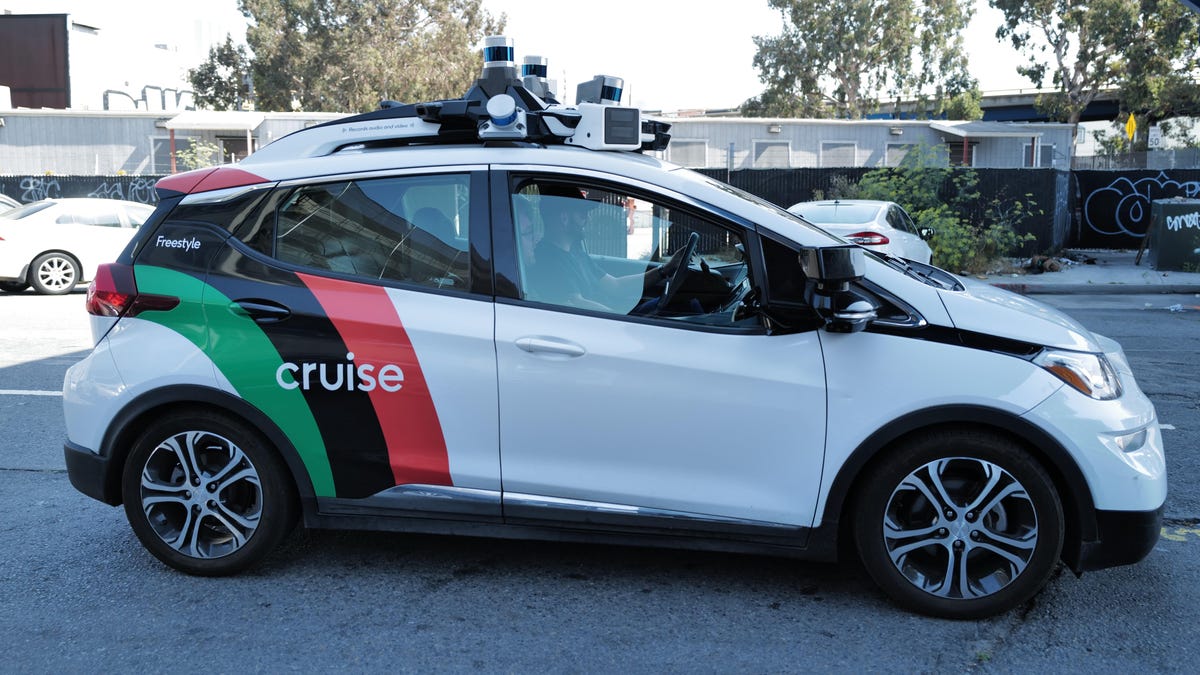
A couple of weeks ago, as San Francisco emergency responders attempted to pull away from a scene where a man had been seriously injured, a pair of Cruise robotaxis allegedly loitered in the ambulance’s path, not understanding that they were required to get out of the way. The man died not long afterward. It didn’t take long for the vehicles to be blamed for the man’s death.
Tensions between locals and the robotaxi population have been notably high since a state-level decision several weeks back unleashed hundreds of the automated vehicles onto Bay Area roads, and this episode seemed to confirm residents’ worst fears. The fact that the cars had obstructed an emergency vehicle—with fatal results—seemed to confirm worst suspicions. Worse still, a leaked public safety memo showed that emergency responders tied to the incident had specifically blamed Cruise’s cars for their slowed response. A flurry of press stories blaming the robotaxis for the incident followed.
Advertisement
It’s now become apparent, however, that the story is more complicated than that. For one thing, city officials have now clarified—weeks later—that Cruise was specifically not at fault for the man’s death. For another thing, it’s been revealed that the man was actually fatally struck by a city bus, meaning that, while emergency responders partially blamed the self-driving cars for the deadly outcome, a human-operated city vehicle was actually the one that wounded the victim.
How the crash actually happened
This week, the San Francisco Standard reported that the victim in question, 69-year-old Sammy Davis, was a homeless man who, on August 14th, fell to the ground behind a city bus and was subsequently struck and seriously injured. Neither the bus driver nor passengers appear to have noticed that Davis had been struck. Not long after the incident, emergency responders showed up and, after loading the man into their ambulance, had their unfortunate encounter with Cruise’s vehicles. In an initial Fire Department report that was subsequently leaked to Forbes, emergency responders were clearly fuming about the role that the self-driving cars had played in the incident. The memo reads:
“The patient was packaged for transport with life-threatening injuries, but we were unable to leave the scene initially due to the Cruise vehicles not moving,” the report says. “This delay, no matter how minimal, contributed to a poor patient outcome…The fact that Cruise autonomous vehicles continue to block ingress and egress to critical 911 calls is unacceptable.”
Advertisement
Advertisement
Cruise previously denied that its vehicles had anything to do with Davis’s death, claiming that only 90 seconds elapsed between the time when he was put on a stretcher and when the man left the scene.
This week, officials released a statement that clarified that Cruise had not officially been blamed for Davis’s death. “The San Francisco Fire Chief has not attributed this pedestrian death to Cruise AVs,” a joint statement by the Fire Chief and the city’s Municipal Transportation Agency reads. The statement goes on to partially blame press reports which relied “on an internal report from an SFFD staff member on the scene” for the perception that Cruise was to blame for the man’s death. “The city sends our deepest condolences to [the] family and friends of the victim,” the statement concludes.
In response to the updated statement from city officials, Cruise provided Gizmodo with the following statement: “Nothing lessens the tragedy of a lost life, but we appreciate the Fire Chief’s clarification that they have not attributed this to Cruise. We look forward to continued and increased collaboration with SFFD on our shared goal of road safety.”
San Francisco’s Robotaxi Infestation
Whether Cruise was at fault for this particular incident, it seems clear that San Francisco is in for some turbulent times, as the automated driving industry uses the city as a giant beta testing ground for its robotaxi experiment. Under such circumstances, it only stands to reason that locals would feel annoyed, if not outright alarmed. More relevantly, the tension between the city’s public safety officials and the robotaxi industry don’t really seem like they’re going away anytime soon. City officials are notably wary of a new, arguably experimental technology that has the potential to stop up traffic, cause accidents, and, potentially, worse. Only time will tell whether that wariness is justified or not.
Services Marketplace – Listings, Bookings & Reviews